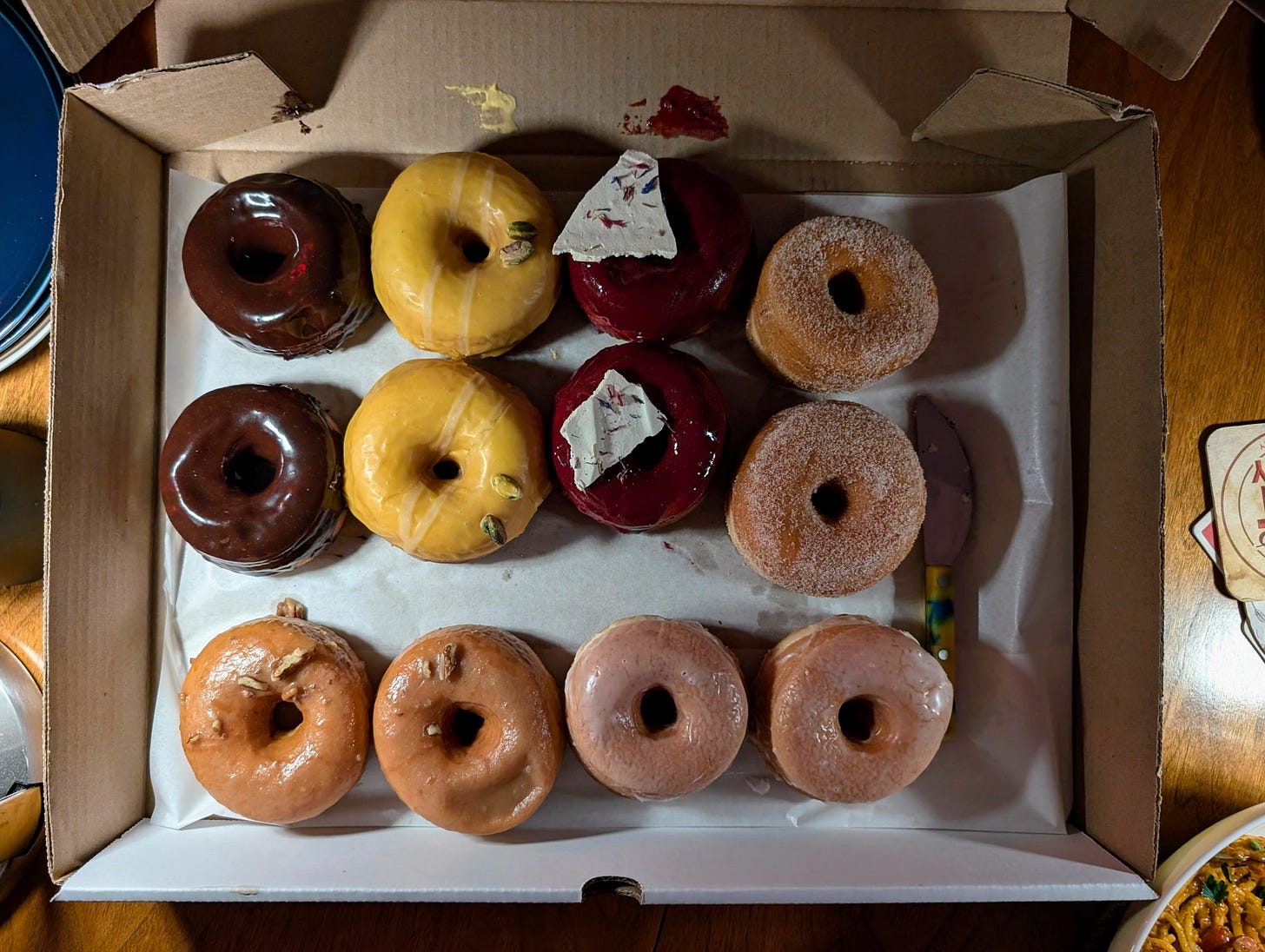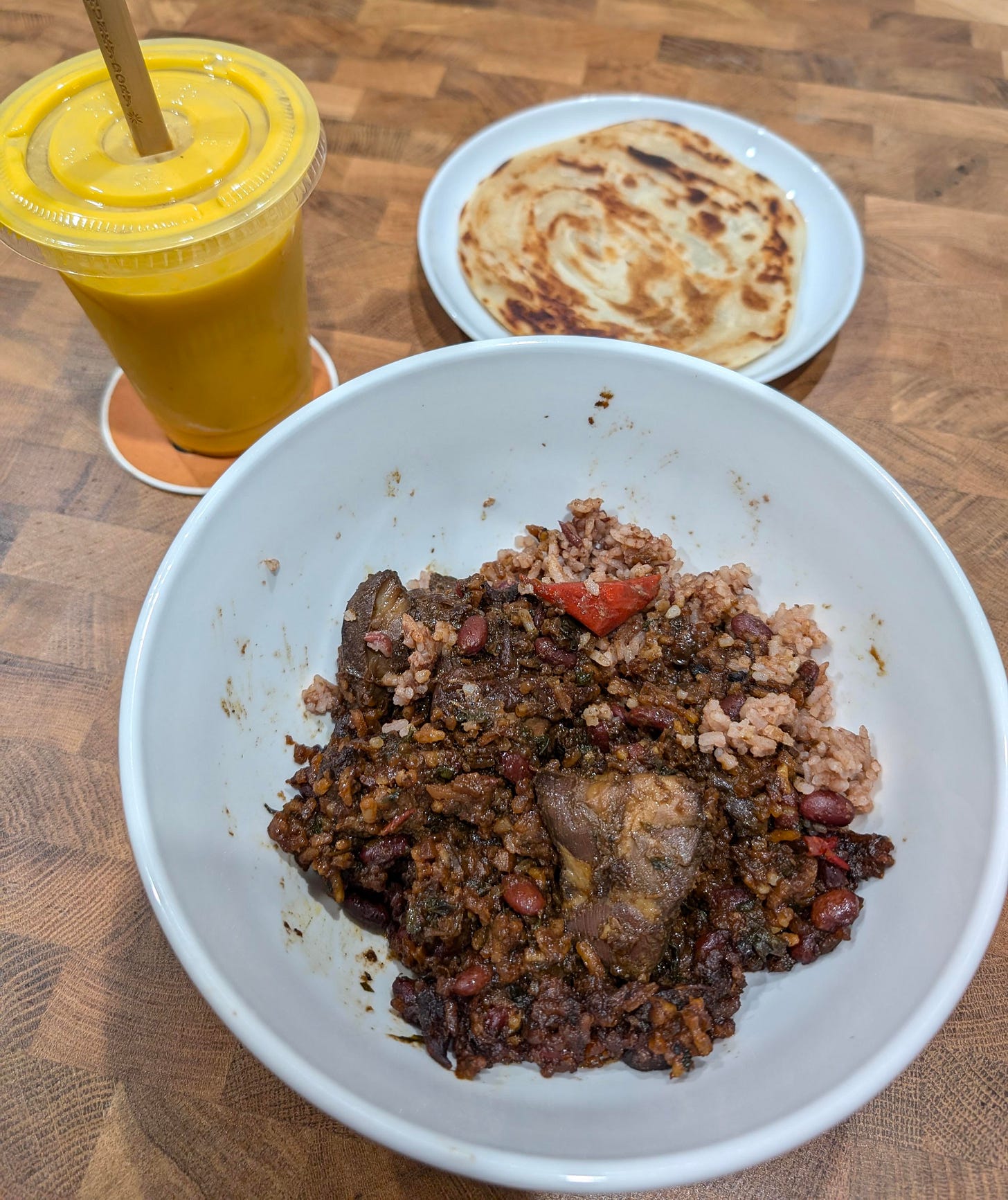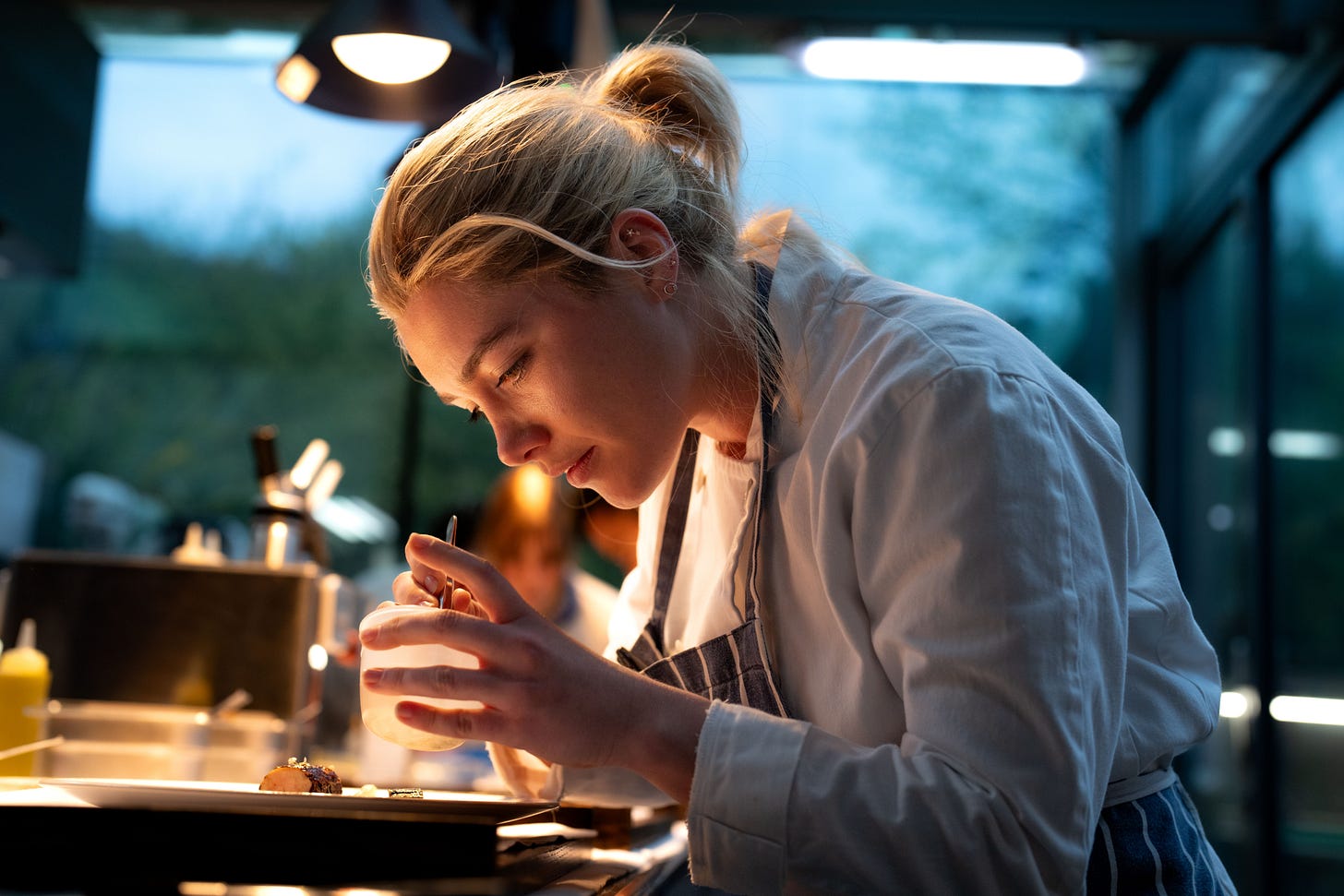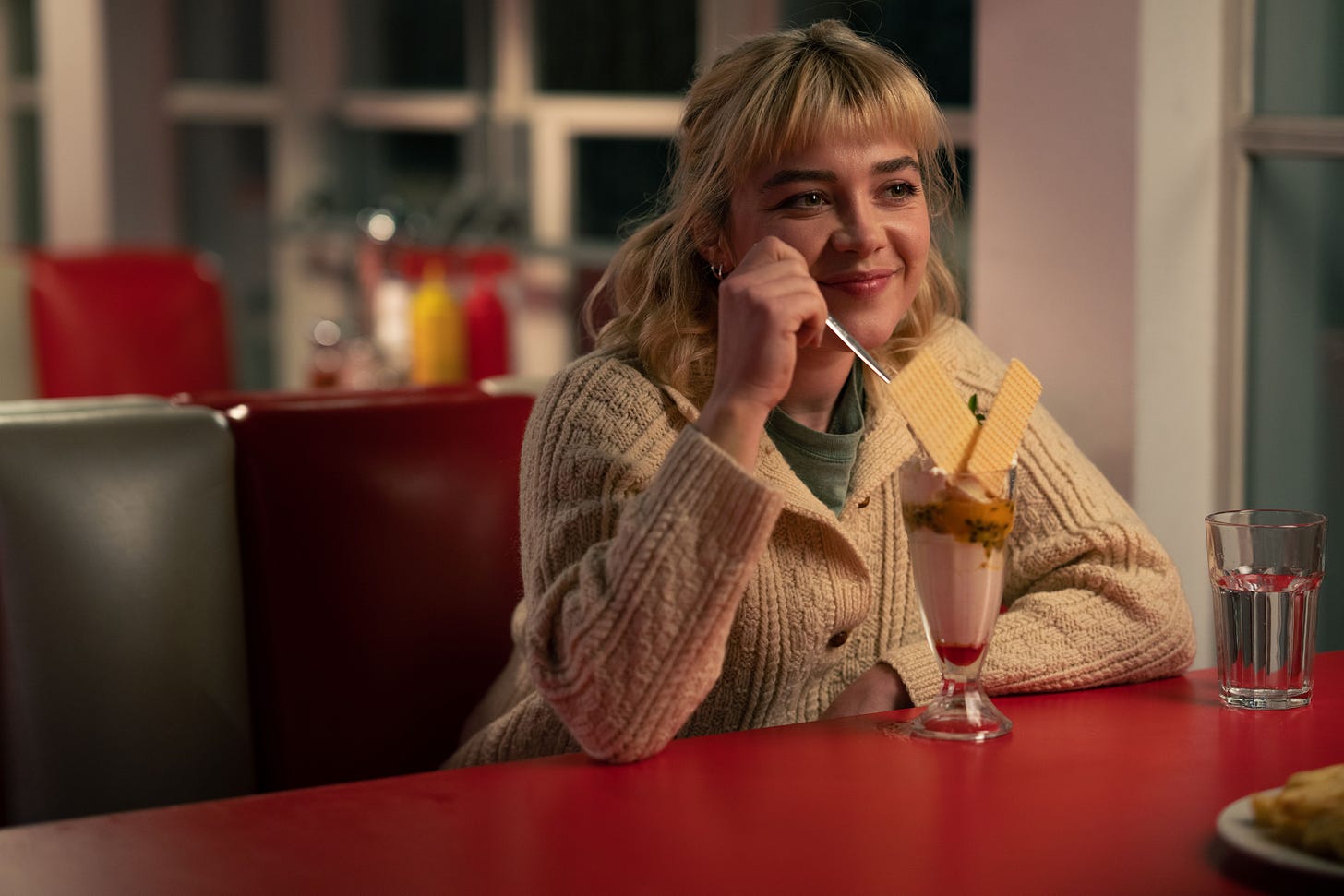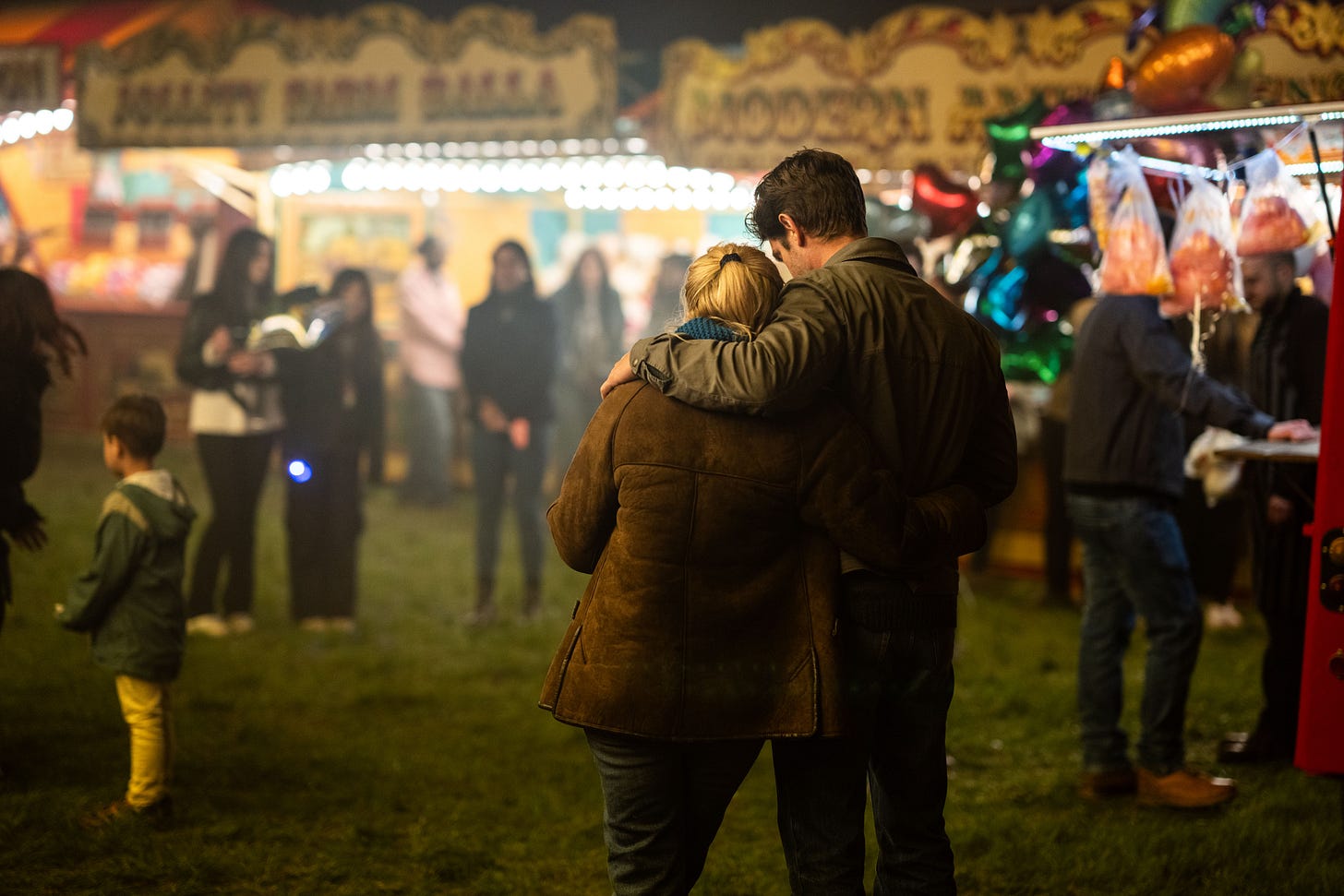We Live In Time & Post-Election Comfort Food
So my dinner party did not go according to plan…
Spending all of election day preparing for a dinner party was an excellent distraction… but once I put the doughnuts on the table, all of my deferred election-related anxieties came to me and I felt hollowed out. That damn needle kept inching further and further rightward, and the energy in my apartment shifted from nervous to numb. Everyone went home by 12:30 AM, when it was becoming clear that Trump would be re-elected.
Not that it matters anymore, but everything I made turned out really well: between the jerk chicken biryani, Haitian spaghetti, and hot dish, everyone had a different favorite. Closing it out with Fan Fan Doughnuts was sorely needed junk food. It surely helped that everything was fatty and rich. But comfort food is no panacea. It’s just food. It doesn’t vote in Wisconsin.

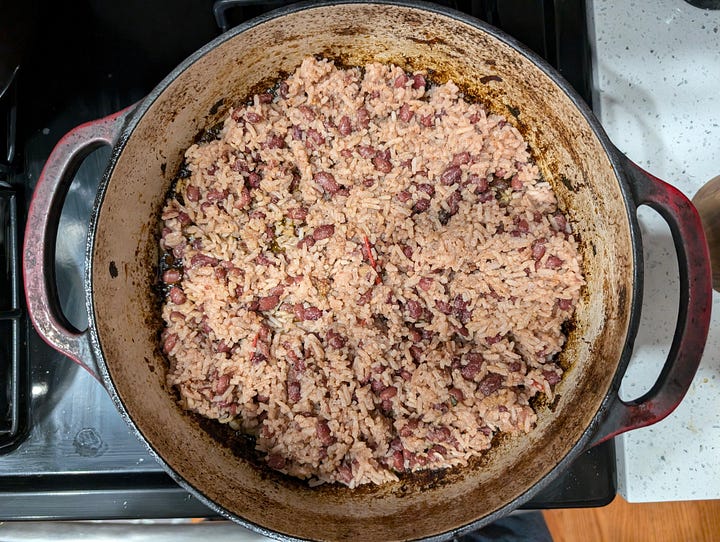
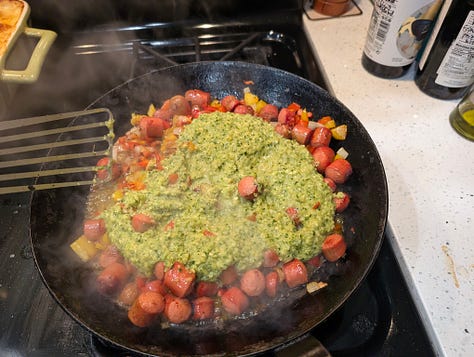
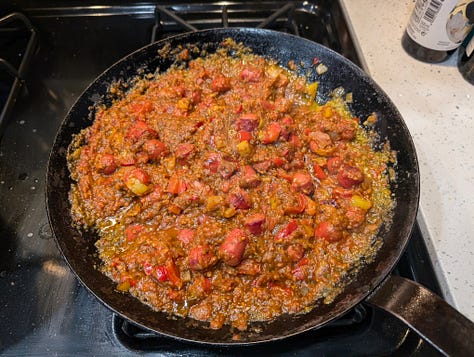
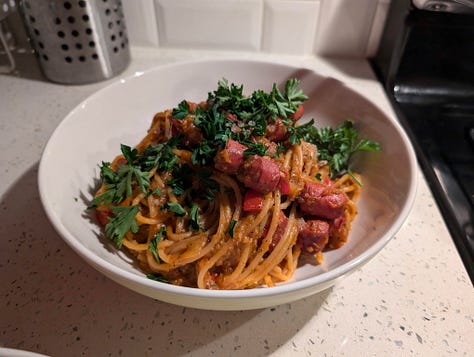
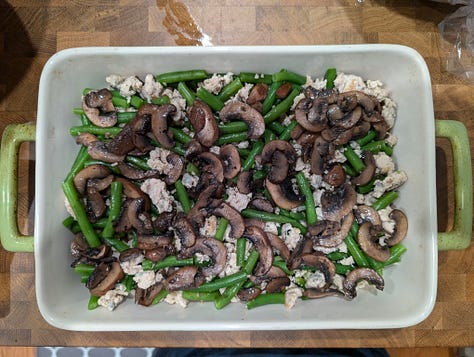
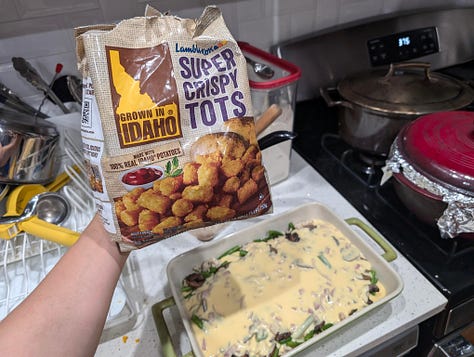
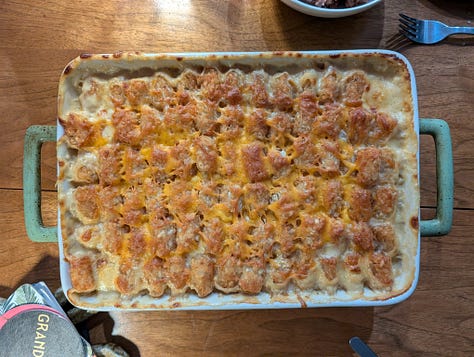
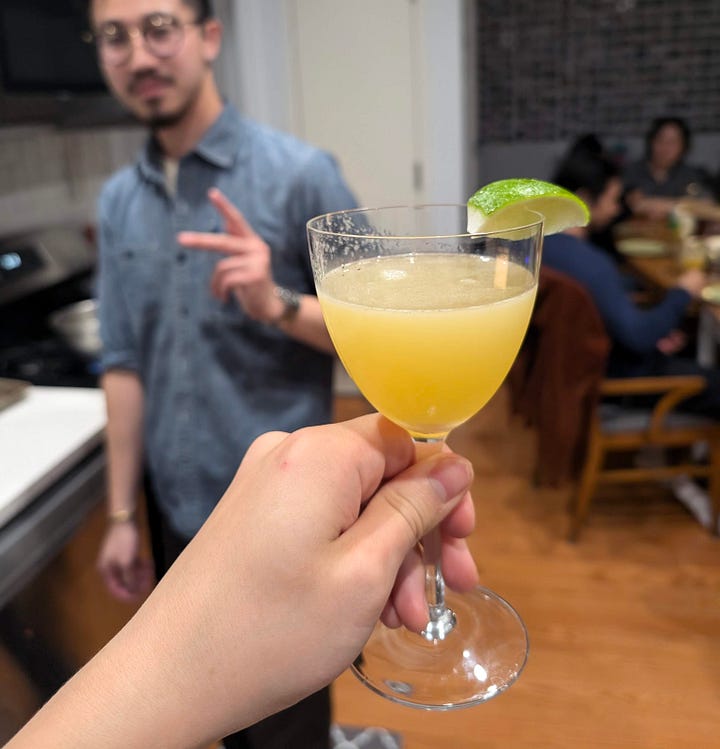
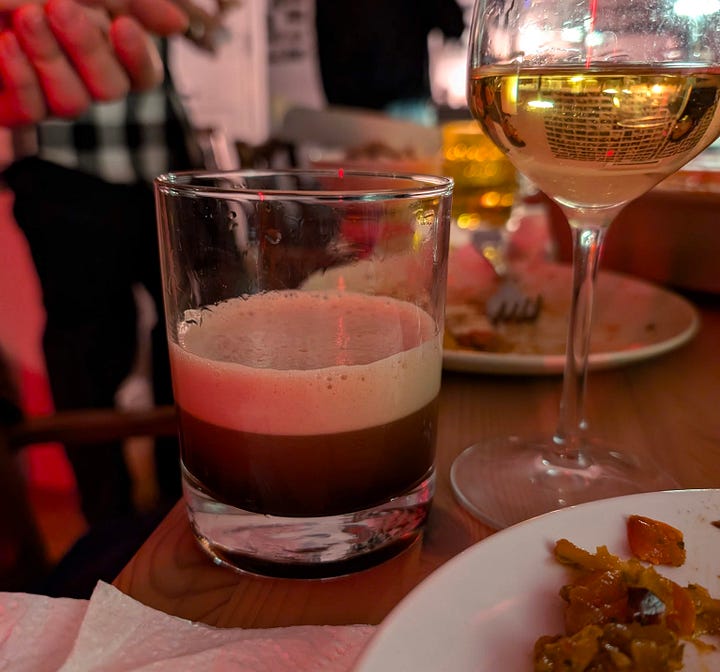
The day after, I spent most of my election hangover on the couch, reading bad takes on Twitter and working my way through every stage of grief. I was relieved that I could microwave some leftover biryani and fry up a frozen paratha to go along with it. I asked some of my friends about their post-election comfort meals. Responses included pasta bolognese, a bottle of Don Julio, chicken nuggets and waffle fries at 12:30 AM, ketamine, and “a lot of butter,” which I hope was not literal.
Comfort Food For a Comfort Movie
That evening, I left the house (with much striving) to see a couple movies, one of which was We Live In Time. It’s exactly what you think it is: a high-grade romantic weepie, compelling because of the non-linear edit and its stars. Andrew Garfield and Florence Pugh breathe life into their conventional characters who start a life together, but their cute relationship is cut short by a cancer diagnosis. Garfield had a very successful press tour for this film, going mildly viral while staying on theme with flirty interviews and tearful podcast readings. The top Letterboxd review at the moment references the meet-cute: “No more dating apps. We are standing in the middle of the highway until Florence Pugh runs us over with her car.”
Pugh’s character, Almut, is a Michelin starred fine dining chef. Her eventual partner Tobias has a vaguely defined sales job at the Weetabix cereal company, a choice that seems to be made to contrast the two. Anyone who’s seen this movie knows that many eggs are cracked throughout: flat on the counter, opened with one hand, using a two bowl system to make it easier to fish out any errant shells. At the beginning of the film, we see Almut whisking a bunch of eggs to make a “Douglas fir parfait” for her partner. This doesn’t really make sense, because the Douglas fir parfait recipes on the internet are based on yogurt, not eggs, and this dessert is not something you’d casually whip up for a Sunday breakfast. It’s just a signal to the viewer that Almut is a high end chef; the name of the dish is understandable while gesturing at luxury, even though it doesn’t fit with the cozier home cooking seen in the rest of the film. A French omelette would have been more realistic, and equally impressive.
Almut’s vocation starts off as a character detail; she and Tobias first hook up after he dines at her first restaurant, an “Anglo-Bavarian” concept in a cozy, urban townhouse1. The amuse-bouche is a microscopic weisswurst, served on a lemon mustard gel. We don’t see the rest of the tasting menu, as we cut to Tobias making out with Almut in her flat2, followed by a sex scene soundtracked by The XX. (It's a great needle drop that makes you feel their consummated desire.) The morning after is a fantasy of what it’s like to date a chef: a cute stroll through open-air markets, sampling cheeses and tapenades, and coming home so that Almut can cook her paramour “the tastiest eggs of your life.”
Eventually, Almut’s career becomes a plot point. Despite her stage three cancer diagnosis, she enters the prestigious Bocuse d’Or cooking competition. This isn’t a food movie, nor is it a movie about food, so during the chef scenes, we get fleeting shots of an extravagantly plated lamb chop and a massive platter of seafood tarts without much explanation. But Pugh moves and speaks like an experienced chef. To prepare for this movie, she staged at Hide, a Michelin-starred restaurant in Mayfair, and the production’s chef consultant was Steve Drake, who owns one-starred Sorrel outside of London. A lot of research and work went into selling us on Almut being one of the world’s best chefs, but like most films, visual appeal takes priority over realism: Almut’s arms are too pristine, lacking the burns and scars that experienced chefs wear as a badge of honor.
Insofar as We Live In Time can be read as being “about food” (which is really stretching it), it’s not about flashy, Michelin-starred fine dining. It’s about what we eat when we are having a bad day. There’s a lot of junk food eaten in this movie! A difficult conversation is had at an American-style diner over burger and fries, a very pregnant Almut craves chocolate and biscuits. When we first meet Tobias, he’s separating from an unseen first wife. Sitting in a motel room, he’s signing the divorce papers when his pen runs out of ink. He walks along an overpass to a petrol station so he can buy a pen (was the front desk closed?), and picks up some Jaffa cakes because why not. He drops his candy on the street, and it’s only because he bends down to pick it up that he’s hit by Almut’s car, thus meeting the love of his life. (This film is also introducing a variety of British packaged foods to unknowledgeable American viewers such as myself, who did a lot of Googling to figure out what a Jaffa cake was.)
When the characters do cook for each other, it’s nothing fancy, just an everyday act of tenderness — Douglas fir parfait notwithstanding — much like how Tobias’s father cuts his hair before that first date with Almut, and Tobias later shaves his partner’s locks before starting chemotherapy. Kumquats on toast, scrambled eggs, all the good stuff. Midway through the film, Almut and Tobias invite their families over for dinner, and there’s a Dutch oven on the stovetop. We never see its contents, but we know what’s inside is much like We Live In Time: warm, fulfilling, and comforting. Something that we could all use this week, this month, the next four years.
Some Comforting Recipe Recs
These are the things I like to cook when I need something warm and hearty. Some of these can take a long time but are not difficult projects, perfect for a night in and paired with a comfort movie like We Live In Time.
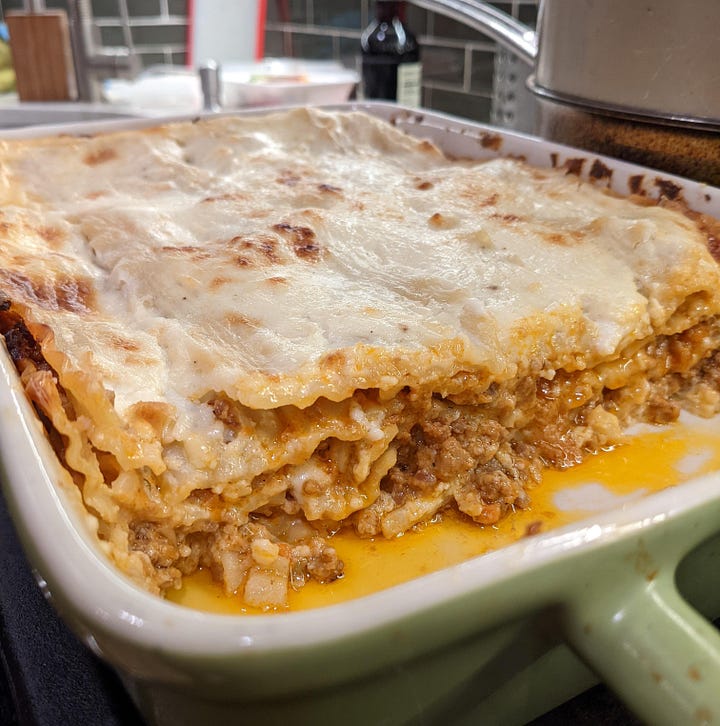

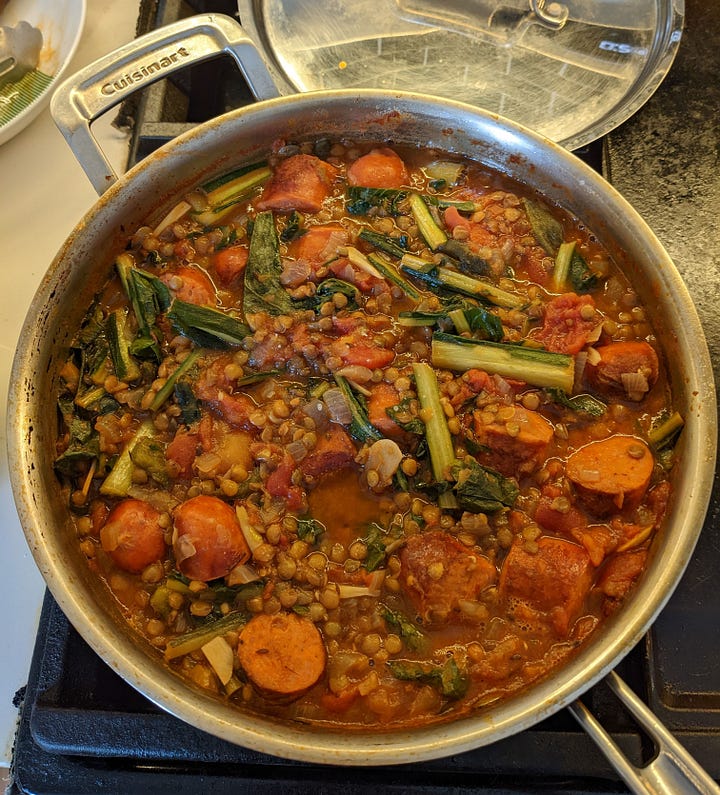

Bolognese lasagna
I make a double batch of bolognese sauce and freeze it so that I can easily make lasagna or pasta. There are a zillion bolognese lasagna recipes, but I use the one in Anna Hezel’s excellent cookbook which is simply named Lasagna.
Cozy Cabbage and Farro Soup
From Joshua McFadden’s Six Seasons, which is my go-to seasonal cookbook. Smitten Kitchen has a version of the recipe online.
Cumin-Scented Lentils With Sausage and Dandelion Greens
A super easy weeknight meal that reheats very well. (Recipe from Serious Eats.)
Beef pho
Andrea Nguyen’s recipe is great. For the meat, I use a mix of bones plus oxtails and/or shanks.
Some Not So Comforting Film Recs
On my mind, for no reason in particular: movies that reveal the dark side of America’s poisoned heartland, where wide open spaces instill narrow minds, and reveal a fundamentally broken society. Call it Dark Americana. These excellent films pictures are the real hillbilly elegies.
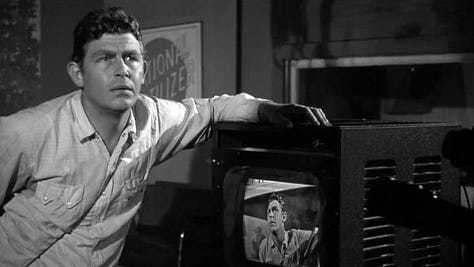


A Face In The Crowd
Prescient in depicting an entertainer being co-opted by the right wing, naïve in thinking the American people ultimately reject such demagoguery.
Ace In The Hole
Consider this a dark comedy about greed, an amorality tale that unfortunately is timeless.
Elmer Gantry
Put this together with A Face In The Crowd and you’ve got a text for understanding The First and Second Presidential Campaigns of Donald John Trump. One could read this particular film as an allegory for Trump's hijacking of evangelical institutions. God is real, and He has a cruel sense of humor.



Killers of the Flower Moon
This selection is obvious.
The Last Picture Show
“American values” have always been a lie. Incredible picture. Peter Bogdonavich never made a better one than this.
Paris, Texas
A dark look at a uniquely American idealism and fantasy. Male loneliness, curdled rage, a red hat.
True Stories
“People Like Us” could be the thesis for American society: “We don't want freedom / We don't want justice / We just want someone to love.”
Honorable mentions that don’t quite fit this niche category because they take place in the suburbs: The Ice Storm and Prisoners. This list is on Letterboxd as well!
Her next restaurant is somewhere outside of the city, in some sort of fancy barnhouse with massive windows. It looks a lot like Noma.
I couldn’t figure out a classy way to make a joke about her being the last course on the tasting menu. Something about bangers being the start and end of the night.



